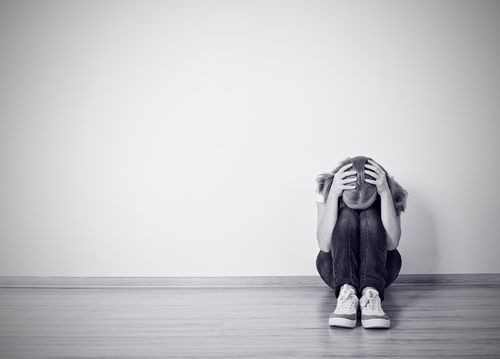How To Deal With A Friend’s Depression: The Importance Of Restrained Compassion

At first it may be a reluctance to hang out. Gradually it turns into a disinterest in most things, and a newfound tendency, and then compulsion, to sleep. Eventually, you don’t even recognize your friend anymore. All that’s left is a person clearly in need of help, but who feels nothing — not even the desire to seek that help.
Depression is the most common mental illness in the United States. It’s estimated that 17 percent of the U.S. population at one time or another will experience a depressive episode, and the grandfather illness, Major Depressive Disorder, arises in roughly three to five percent of all males and eight to 10 percent in females. Still, diagnosis is spotty. And recognizing depressive symptoms isn’t always desirable, particularly as the line between mood disorders and depression remains blurry. But for those who know depression when they see it, helping a friend cope with the illness is a challenge unto itself.
The first thing to understand when you see a friend coping with depression is that he or she may not realize they have it. Depression may be growing in prevalence, but to make the cognitive leap from “I’m sad” to “I’m sick” isn’t always easy. Often, it’s fraught with cognitive dissonance, as is the case with many illnesses, such as eating disorders and addictions. When people don’t know they’re depressed, or are reluctant to admit it, best practice dictates you ask them to consider professional help.
Short of psychiatric options, being a friend to someone with depression can mean many different things. But author and psychiatrist Dr. Deborah Serani, who penned Living With Depression, argues there are a few strategies that tend to work better than others. The first, she says, is simply to be present. Friendship relies on fellowship, and a wordless encounter with a carefully attuned ear can mean the world to someone.
“When I was struggling with my own depression,” explained Serani, according to Psych Central, “the most healing moments came when someone I loved simply sat with me while I cried, or wordlessly held my hand, or spoke warmly to me with statements like ‘You’re so important to me.’ ‘Tell me what I can do to help you.’ ‘We’re going to find a way to help you to feel better.’”
What Serani doesn’t advise people to do is overstep their boundaries. Depression is a complex beast, a personal battle with a deep-seated chemical error that isn’t shaken with a simple, “Cheer up.” The illness isn’t based in reason (not to say any of them are), so trying to convince someone with logic that depression isn’t somehow “worth it” has no choice but to fail. Your sense of logic can’t compete with the intricate web of an ill-working brain.
This is why tough love doesn’t work. Or judgment. Or criticism. Or comparisons to other experiences. These techniques all find some root in what you’d normally expect someone to feel. The only way to pierce the shell of depression is through emotion. Serani recommends a small gesture, such as a voicemail or even a reassuring text.
“These gestures provide a loving connection,” she said, “[and] they’re also a beacon of light that helps guide your loved one when the darkness lifts.”
Ultimately, helping a friend with depression is a matter of understanding. Educate yourself about the illness. Understand what the person should expect to go through, because denial may be stopping them from finding out themselves. And be patient, Serani says. When it comes to depression, hope is a rare commodity. Your friend may not express it, but you could be the only source of reassurance they have. They don’t want to be suffering any more than you do.
“When you’re patient with your loved one, you’re letting them know that it doesn’t matter how long this is going to take, or how involved the treatments are going to be, or the difficulties that accompany the passage from symptom onset to recovery,” Serani said, “because you will be there.”



























